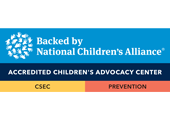Saying “No” is About More Than One Idea of Consent
August 19, 2021
There is seemingly no end to the debate about personal choices in our nation: for or against vaccinations, standing or kneeling for the pledge, abortion, naturalization vs. pathways to citizenship, changes to the second amendment, etc. All of these carry an inherent personal choice for or against something, but they may also lead to a secondary impact or carry a greater meaning. Whether that meaning is symbolic, or manifests change is up for debate until the test of time decides an outcome.
As the Tokyo Olympics came to an end and the United States emerged victorious it was not the medal count that struck as the monument of importance. It was the courage on display from Simone Biles in her ability to say “no” which resonated so much. Regardless of her athletic ability and whether or not she felt she had anything to prove, the lesson to take away from Ms. Biles is that bravery and self-worth isn’t pushing through challenges despite how you feel but acknowledging that sometimes a task may be too great and it’s ok to take a step back.
Ms. Biles’ leadership in promoting the choice to take care of herself on the world’s largest stage is as inspirational as her athletic performance.
Recently, several articles have been published about the use of “sick time” in the United States and how prior to the COVID-19 pandemic Americans would regularly go to work sick. Nearly 25 percent of respondents in a poll stated they would go to work if they felt sick. As our country does not have a requirement for paid sick time there are many who work while sick because not doing so may mean a day of lost wages. There is a perception that if you take a sick day, that you are weak, expendable, or that you just don’t care about your job. There is a very large value system based on “work” or the responsibility you bear in your profession in our nation. The shame, guilt, and anxiety of being out sick often forces many to go into work when they feel awful, which can also impact those around them. With 1 in 5 Americans impacted in some way by a diagnosis of mental illness (depression, anxiety, PTSD, Post-Partum, etc.) how many people are forcing themselves to perform when the struggle was simply getting out of bed?
However, with the impacts of COVID-19, there has been a renewed discussion about sick time, and a much larger (though not universal) expectation that if someone is sick, feeling sick, or having any symptom of illness they should not go to work or school. This has led to impacts in the workforce, education, and numerous other sectors in our nation, but those impacts are not as devastating as believed. The discussions about being proactive in support of sick colleagues and coverage for work have accelerated and, in many cases, have positive outcomes and solutions. Are we getting closer to the discussion of the need for time off for mental health wellness as well?
Ms. Biles is a role model for us all showing immense bravery in openly discussing her struggles and her fear of not being able to perform at the level she expects of herself – which is no doubt higher than the expectations from us as spectators of the sport. Ms. Biles made a greater statement to us that sometimes, no matter how important the “job,” everyone has the choice to prioritize their own self-care and self-worth, and to say that even if others cannot see that something is wrong, there may actually be a burden being carried that is too heavy to lift at that moment.
For survivors of sexual abuse, whether it has been disclosed, undisclosed, prosecuted, dismissed, publicly known or private: the burdens deep inside can be a substantial weight to carry day to day. The adversity that Ms. Biles has endured and overcome so publicly cannot be understated. Her performance as an international athlete past and present cannot be minimized. Her true merit as a champion is her willingness to say, “I just felt it would be a little bit better to take a back seat, work on my mindfulness.” Ms. Biles’ leadership in promoting the choice to take care of herself on the world stage is as inspirational as her athletic performance.






